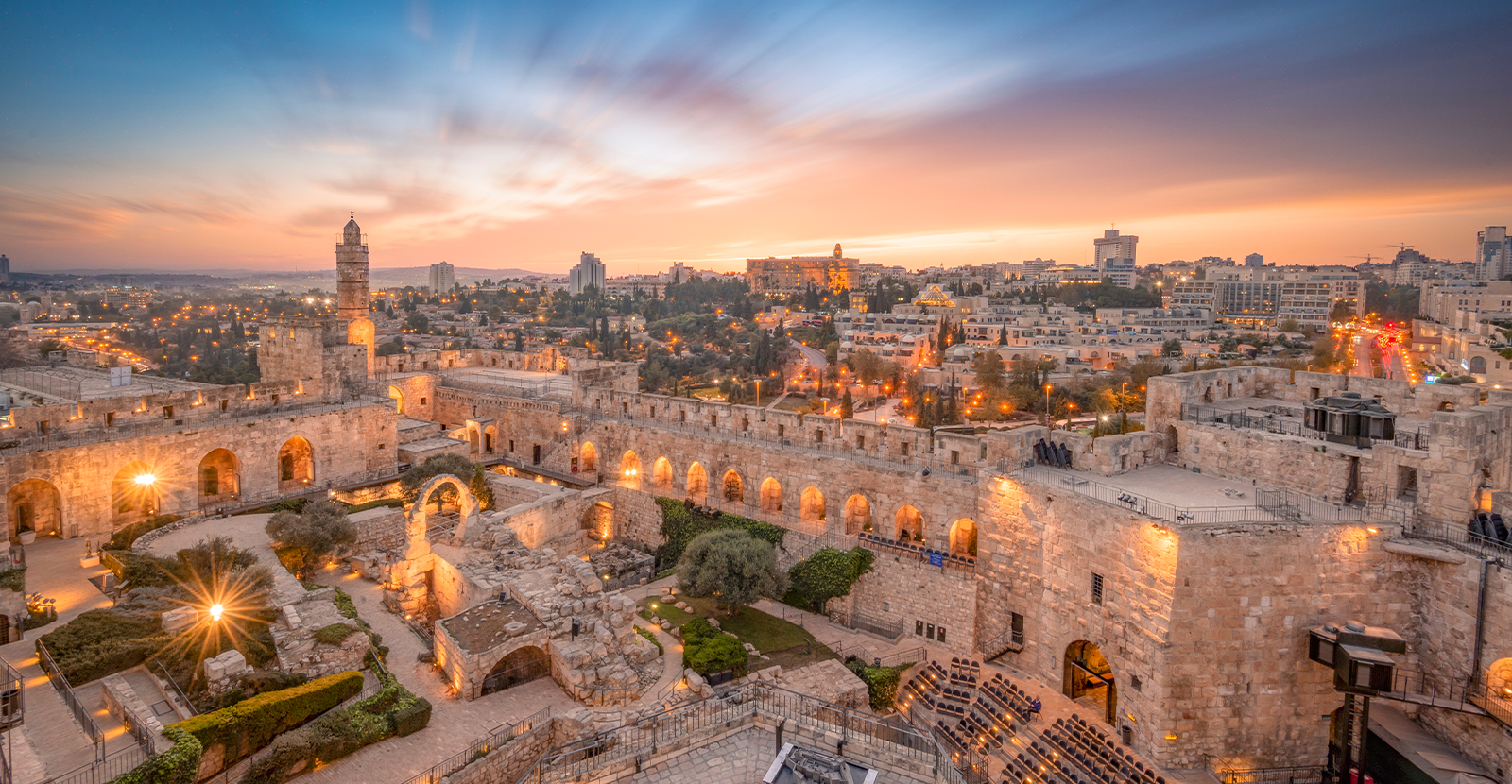Magazine

Holding my son and daughter, and holding back tears, I said goodbye to my family as I prepared to return to Jerusalem. On October 7, 2023, we were just wrapping up a family vacation in Greece. We had never imagined anything like the horrific attacks in southwestern Israel. With the situation fluid and unknown, my wife and I agreed it was best for me to return to campus alone, and as quickly as possible. It would be eight long weeks before I embraced my family again—and much longer before we regained a sense of stability.
Shortly before the October 7 attacks, I had entered my third academic year as president of Jerusalem University College (JUC). Founded in 1957, JUC’s original purpose was training Christian leaders in the contexts of scripture through immersive study in Israel. Before 1997, we were known as the Institute of Holy Land Studies, and for decades we have enjoyed partnerships with scores of other Christian colleges, universities, and seminaries, who send their students to JUC for supplemental, three-week intensive courses or semester-long study abroad experiences. Each semester, we serve a remarkable cohort of graduate and undergraduate students in Jerusalem. At times, we may have 50 students studying in Jerusalem during a fall semester while another 150 nontraditional students arrive to take a two-week, non-credit “Pastor and Parishioner” course, typically scheduled for early November. These seasons get quite busy as we facilitate immersive study experiences for a vast array of people in Israel.
My first two years as president were spent surviving and recovering from the COVID-19 pandemic and its financial impact. Our team worked tirelessly for two years to build back enrollment. The leadership team charted out a long-range strategic plan centered around initiatives to accelerate growth, strengthen systems, connect alumni and stakeholders, restore facilities, and refine and expand academic programs. With energized teams—one in the U.S., the other in Jerusalem—an invigorated board of directors, and a projected enrollment of 1,200 students in our long- and short-term academic programs, the ‘23-24 academic year promised new hope. As the fall semester started, 44 students began their studies in Jerusalem. With peace of mind, my family and I booked a trip to Greece during our kids’ fall break and began counting down the days until our departure—October 2.
As my family and I departed with bags packed for six days of beach fun in Mykonos, we said goodbye to our team and the students living on campus in Jerusalem. We had a lovely time—until I was abruptly awoken on Saturday, October 7. Something terrible had happened in Israel. We had traveled to Greece with a friend from Jerusalem, who happened to be the Middle East correspondent for a large news company. He was deeply engrossed on his phone, his expression weighed down with concern. My own phone vibrated nonstop with text messages and phone calls from my colleagues on campus, informing me that students and staff were sheltering in place due to several early morning sirens notifying residents of rocket fire.
For the next several hours we huddled around our phones, the only physical objects now tethering us to Israel. We gathered as much information as we could—a surprise attack out of Gaza, hundreds of unsuspecting Israelis killed, hundreds taken as hostages, hundreds of rockets fired into Israel. It was sickening to read, and overwhelming to process. On campus, the JUC team acted swiftly and decisively to ensure all our students were safe. Nearly all students were already on campus, but two had traveled south for a weekend camping trip in Timnah Park, and another was in a suburb a mere dozen miles from where the violence was taking place. Thankfully, we were able to get everyone back to campus or out of Israel safely over the next several days and weeks. In the aftermath of the attacks, some students and staff opted to leave Israel, but many chose to stay in Jerusalem to continue their studies.
More than 18 months have passed since this moment in Greece. The war has redefined so much of our lives, as well as Jerusalem University College as an institution. The fact that JUC remains open and serving students amazes me. As I write this, we have 12 graduate students working on JUC degrees, along with one undergraduate student from Columbia International University in South Carolina. While the war has remained a fixture in the background of our work, it has had little effect on the day-to-day in Jerusalem. With our seasoned faculty, students have safely and without issue visited 100% of the sites we typically visit in a standard semester.
The road to recovery remains long, but for the first time since October 7, my family finally feels stable. Over the past 18 months, I spent a total of 20 weeks apart from them. Personally, this has been the hardest year of my life. I love challenging ventures that demand strategic thinking—that is what drew me to JUC in the first place. Yet, this adversity has stretched me physically, emotionally, and spiritually in ways I could not have imagined. Leading two teams on two different continents with very different realities requires constant communication. Managing the finances of an institution impacted so drastically and so quickly has required lengthy conversations with leadership and the board of directors.
Today, as I reflect on our journey, I am proud of JUC’s response and management in an unstable and unpredictable environment, of my family’s resilience and sacrifice, and of my team’s courage, flexibility, and brilliance through such adversity. By God’s grace, our donor base has doubled, lifting some of the immense financial burden caused by the estimated 85% loss of revenue. Although the war continues, we maintain hope and confidence that God will continue to show his faithfulness to this Christian school situated on Mount Zion.
__________
Dr. Oliver Hersey serves as president of Jerusalem University College in Jerusalem, Israel.
